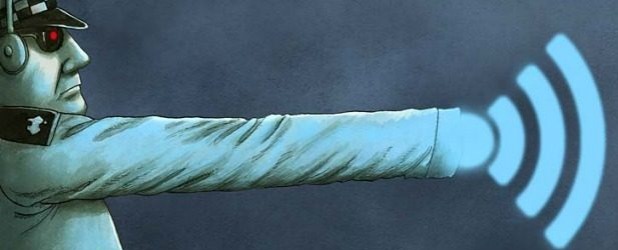( Graphic : The Age)
Amidst these investigations, the Sunday Times can reveal today how telephone records of prominent opposition politicians, media personnel, former UPFA Government’s own ministers, ‘unfriendly’ military, police officers, Colombo-based diplomats and other leading citizens were monitored blatantly violating the law. In terms of the law, a Court order has to be obtained by the Police before intercepting or tampering with the telephone records of subscribers. All mobile phone operators were issued written instructions by an official in the Ministry of Defence and Urban Development. They were directed to make available the monthly telephone bills of these persons to an Assistant Superintendent of Police (ASP) in the Terrorism Investigation Division (TID) for reasons of “national security.”
Every month, police officers would visit different mobile phone providers to collect these monthly bills. Thereafter, the ASP would supervise a team of police officers examine every bill to determine to whom their targets speak. Under the cover of “national security,” the telephone bills were systematically analysed and a report prepared for scrutiny by the higher-ups. The identification of those who are supporters of the present Government led to surveillance being mounted on them. There have been instances when some have even been threatened.
The Terrorism Investigation Department (TID) of the Police is located on the third floor of the new Secretariat Building. The headquarters of the Criminal Investigation Department (CID) is on the fourth floor of the same building. If “national security” is used as a cover to snoop into the mobile phone records of those considered “national security threats,” like for example a leading member of the opposition, is indeed damning, the fact that this became a regular practice in what was then touted as the ‘Wonder of Asia’ was laughable. When Sri Lankans go on holiday to any tourist hotel, the management there was required to report their name and national identity card numbers to the nearest Police station. The police would forward them to a unit under DIG Chandra Wakista, who headed the State Intelligence Service (SIS). He attended the first National Security Council meeting of the new NDF Government on Friday. Wakista quit his post yesterday.
Earlier, telephone analysis of genuine targets was carried out by either the SIS on grounds of “national security” or the CID in instances where crime is involved. Despite the end of the separatist war, the TID became a convenient cover to spy on the phone records of unsuspecting citizens who had hardly anything to do with terrorism. Even if these bills have been destroyed by those at the TID, the copies of letters issued to mobile phone providers by the MoD official and the copies of bills they issued are available with each one of them. There is no gainsaying that an investigation into this is imperative to lay bare the identities of those who tried to create an authoritarian state.
A senior TID officer who is familiar with the working of this illegal operation said even some Government officials who were considered supporters of the opposition political parties came under scrutiny. “It is only a fuller investigation that will bare this massive operation which invaded the privacy of citizens and outsiders,” the TID officer said. He added that those who violated the law should be prosecuted if the new Government wished to prevent such “anti-democratic” acts recurring under the pretext of “national security.”
– From the Political column of the Sunday Times
